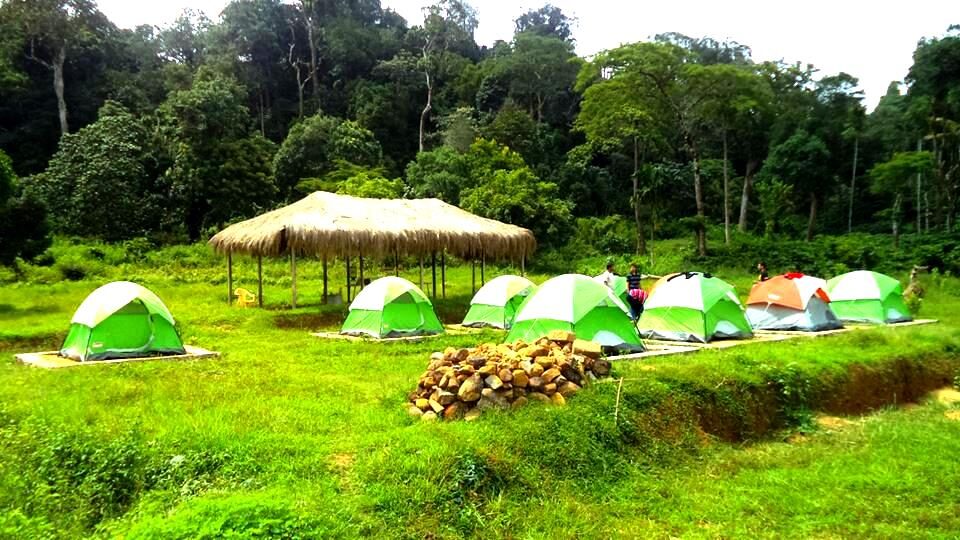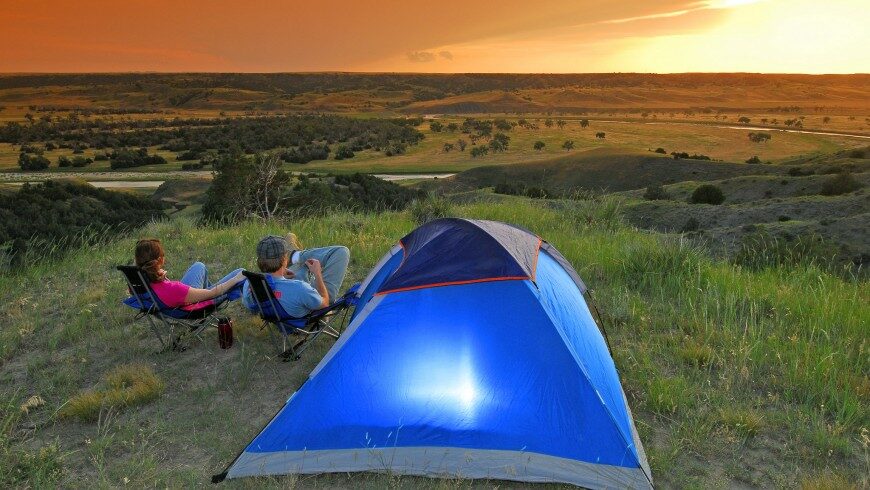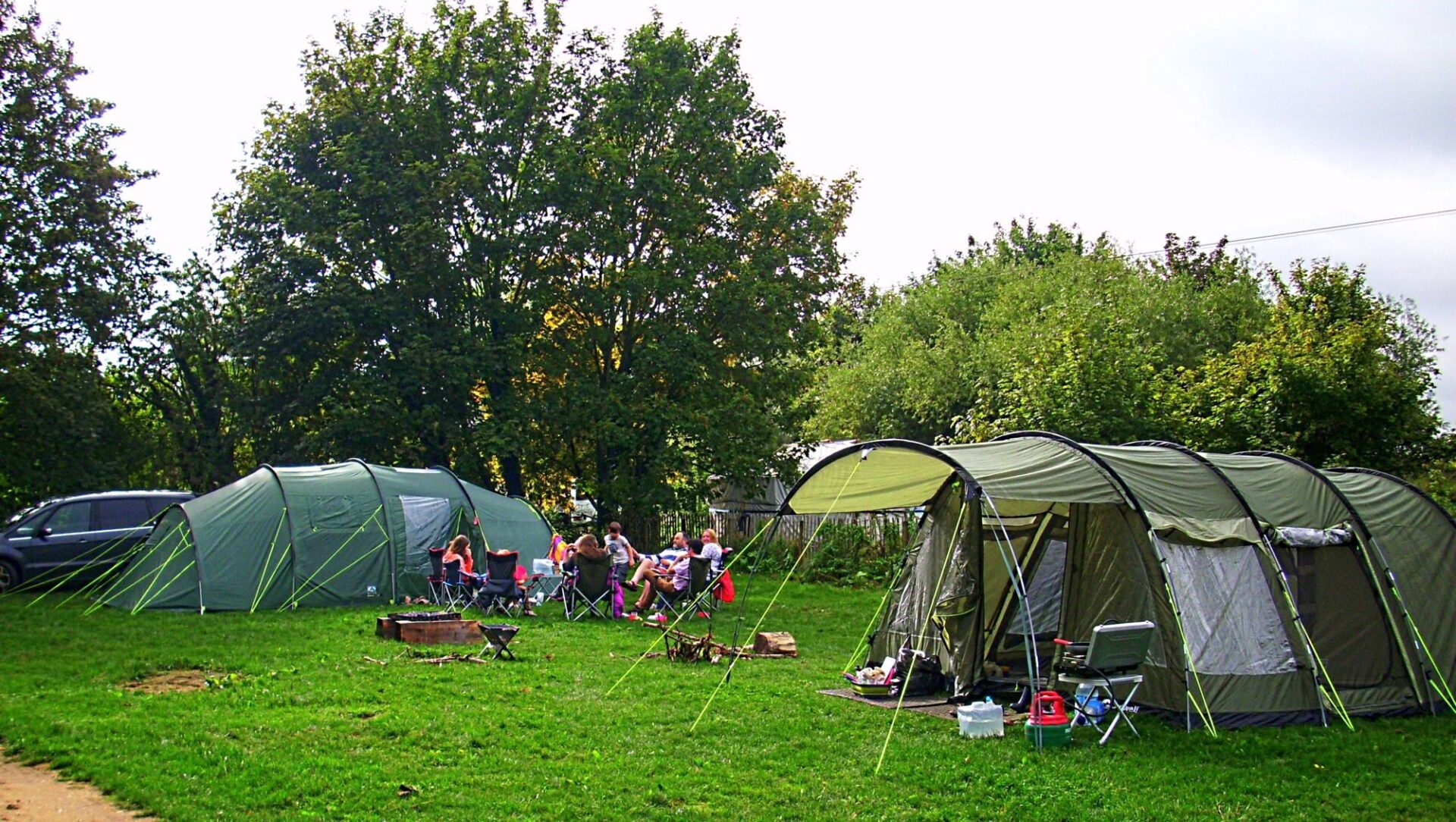
Picture this: crisp morning air tickling your cheeks, pine needles crunching underfoot, and a crackling campfire casting a warm glow on your face. Camping promises an escape from the concrete jungle, a chance to reconnect with nature’s symphony. But amidst the campfire songs and marshmallow meltdowns, a question arises: are we leaving behind more than just footprints? Fear not, green-thumbed newbie, for eco-conscious camping is here to harmonize your outdoor adventures with environmental responsibility.
Introduction
In a world increasingly aware of environmental impact, eco-conscious camping offers a sustainable way to connect with nature. This blog post explores tips, tricks, and essentials for minimizing your ecological footprint while enjoying the great outdoors.
Gear Up for Green: Choosing Eco-Friendly Essentials
Before you pitch your tent in the wilderness, consider minimizing your environmental footprint right from the packing stage. Invest in a reusable tent and sleeping bag made from recycled materials. Ditch the disposable plates and mugs; opt for durable, reusable alternatives like stainless steel containers. And forget the one-use plastic water bottles; a sturdy metal canteen will quench your thirst and keep the plastic out of the woods.
Leave No Trace, Leave Only Wonder
The cardinal rule of eco-conscious camping is simple: leave no trace. This means packing out every single scrap of trash, from banana peels to used tissues. Remember, even biodegradable items take time to decompose, and nature isn’t equipped with a garbage disposal. Be a silent observer, not a noisy polluter.
Fireside Symphony: Responsible Campfire Practices

Ah, the campfire. Nature’s flickering jukebox. But be a responsible conductor. Always gather firewood from fallen branches and dead trees, never chopping down living ones. Create a small, contained fire ring, and douse it completely with water before leaving. Remember, Smokey the Bear is your friend, not your fuel supplier.
Eco-Friendly Food Choices
Plan meals with minimal packaging and opt for locally sourced, organic ingredients. Reduce waste by bringing reusable containers and packing out any leftover food scraps.
Water Conservation
Conserve water by using biodegradable soap away from water sources. Consider water purification methods like filters or tablets instead of disposable water bottles.
Eco-Friendly Transportation
Choose sustainable transportation options to reach your camping destination. Carpooling, biking, or using public transportation can significantly reduce your carbon footprint.
Be Mindful of Wildlife

You’re a guest in nature’s concert hall, so respect your fellow performers. Observe wildlife from a distance, never intruding on their space. Minimize noise and light pollution, allowing the nocturnal creatures to serenade the night. Remember, you’re here to listen, not steal the spotlight.
Beyond the Campfire: Eco-Conscious Activities
Camping isn’t just about campfire sing-alongs. Explore the trails responsibly, sticking to designated paths to avoid trampling flora and fauna. Choose eco-friendly activities like birdwatching, kayaking, or stargazing—experiences that enrich your soul without leaving a mark.
Support Eco-Friendly Campsites
Choose campsites that prioritize sustainability and environmental conservation. Look for those certified by organizations like Leave No Trace or that follow eco-friendly practices.
Beyond the Woods: Spreading the Green Gospel

Your commitment to eco-conscious camping doesn’t end when you pack up your tent. Share your green wisdom with friends and family, inspiring them to embrace responsible outdoor practices. Advocate for environmental causes and support organizations dedicated to preserving our natural treasures. Remember, every voice counts in this ecological chorus.
Conclusion
Eco-conscious camping is a rewarding way to enjoy the outdoors while minimizing your environmental impact. By adopting sustainable practices and making mindful choices, campers can contribute to the preservation of nature for future generations. So, gear up, leave only footprints, and immerse yourself in the beauty of eco-conscious camping.
You May Also Like…
- Affordable Jewelry For Women – Cheap Jewelry and Accessories
- How to Make Money Online With E-Commerce: Digital Success
- Top European Football Club and their 2023/2014 Home Jersey
FAQs
I’m on a budget. Can eco-conscious camping be affordable?
Absolutely! You don’t need fancy gear to be green. Borrow or buy used equipment and focus on reusable items that’ll last for years. Many campsites offer recycling facilities, and local parks often host free wildlife watching events. Eco-camping is about mindful choices, not expensive gadgets.
Do I need special skills for eco-conscious camping?
Not at all! The basic principles are simple: pack out your trash, respect wildlife, and be mindful of your impact. The internet is your friend, offering countless resources and tips for green camping newbies. Just remember, even small steps make a big difference.
Can I still have fun camping while being eco-conscious?
Absolutely! In fact, minimizing your environmental footprint can heighten your outdoor experience. You’ll become more attuned to your surroundings, appreciating the delicate balance of nature. The joy of a crackling campfire fueled by fallen wood, the thrill of spotting a deer by a sun-dappled trail—these are the true gems of eco-conscious camping.
Where can I find eco-friendly campsites?
Many campsites advertise their commitment to sustainability. Look for certifications like Leave No Trace or search online for “eco-friendly campsites near me.” National parks and forests often have strict regulations in place to protect the environment.
I live in a city. Can I still practice eco-conscious camping?
Of course! Urban parks and even your backyard can be your canvas for green camping adventures. Pitch a tent under the stars, gather fallen leaves for a mini-bonfire, and listen to the chirping symphony of city birds. Every conscious effort, even in a concrete jungle, contributes to a greener future.


